Which of the following reactions will yield phenol ?
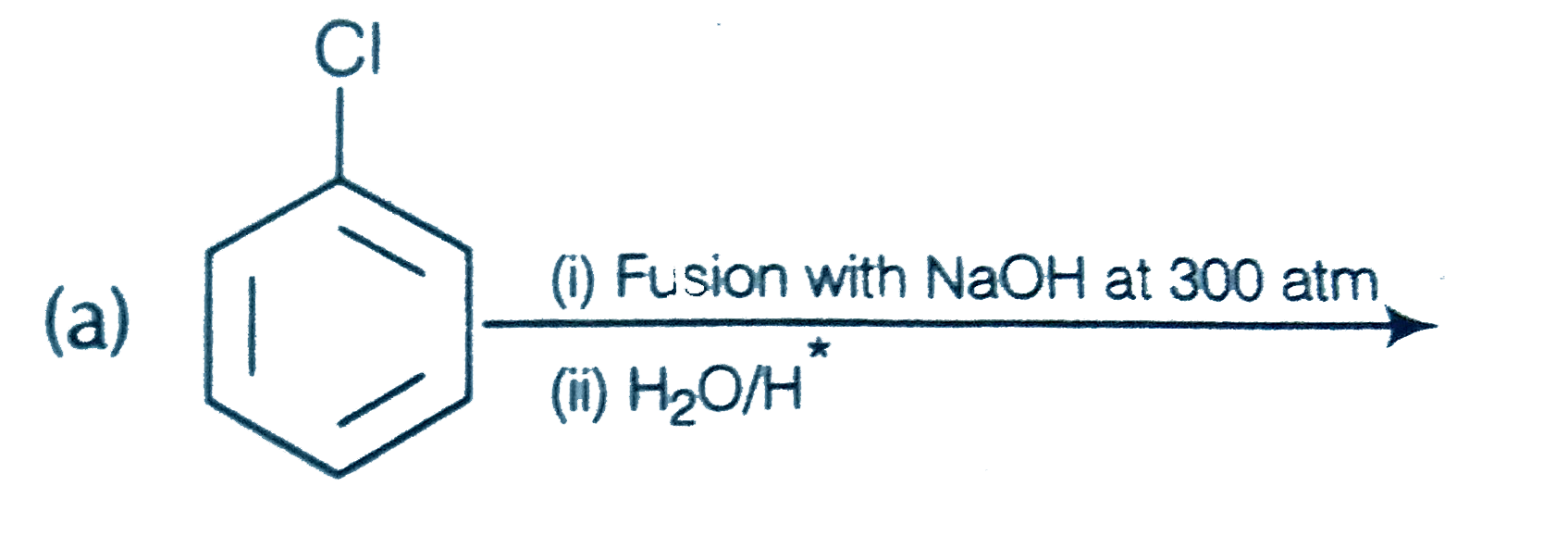
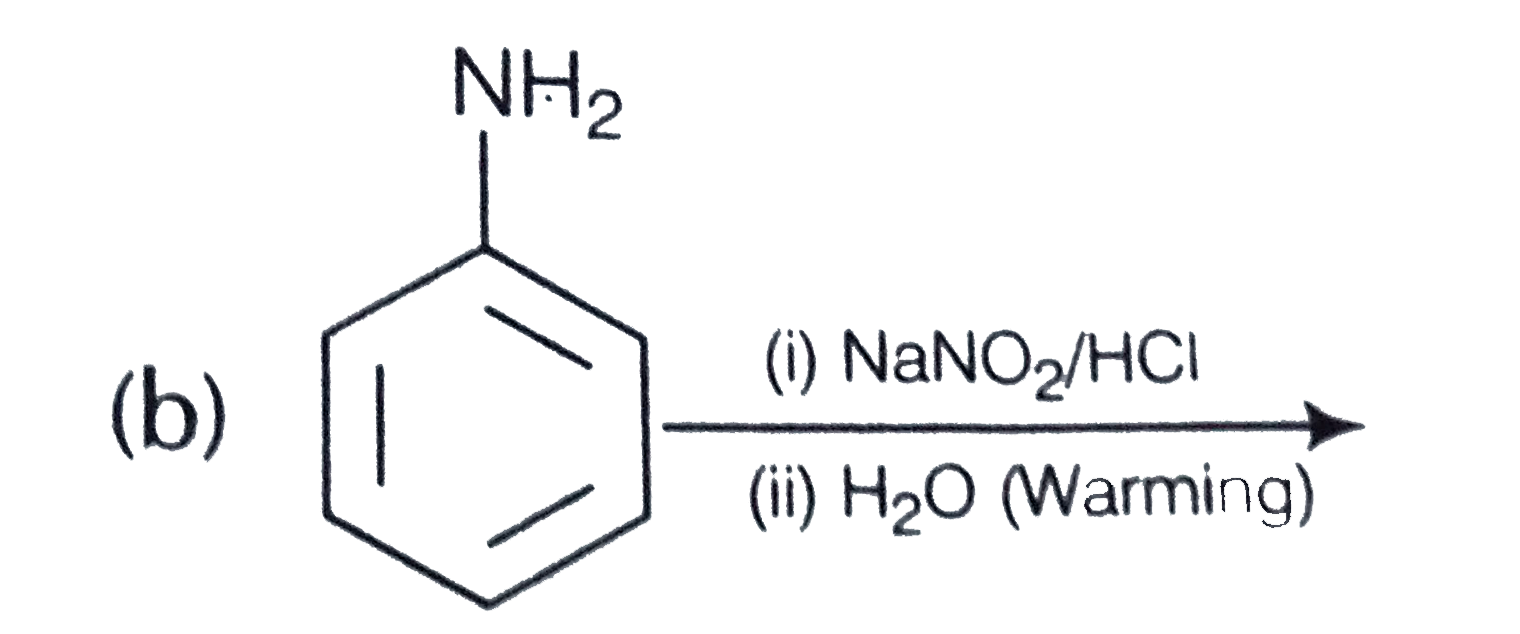
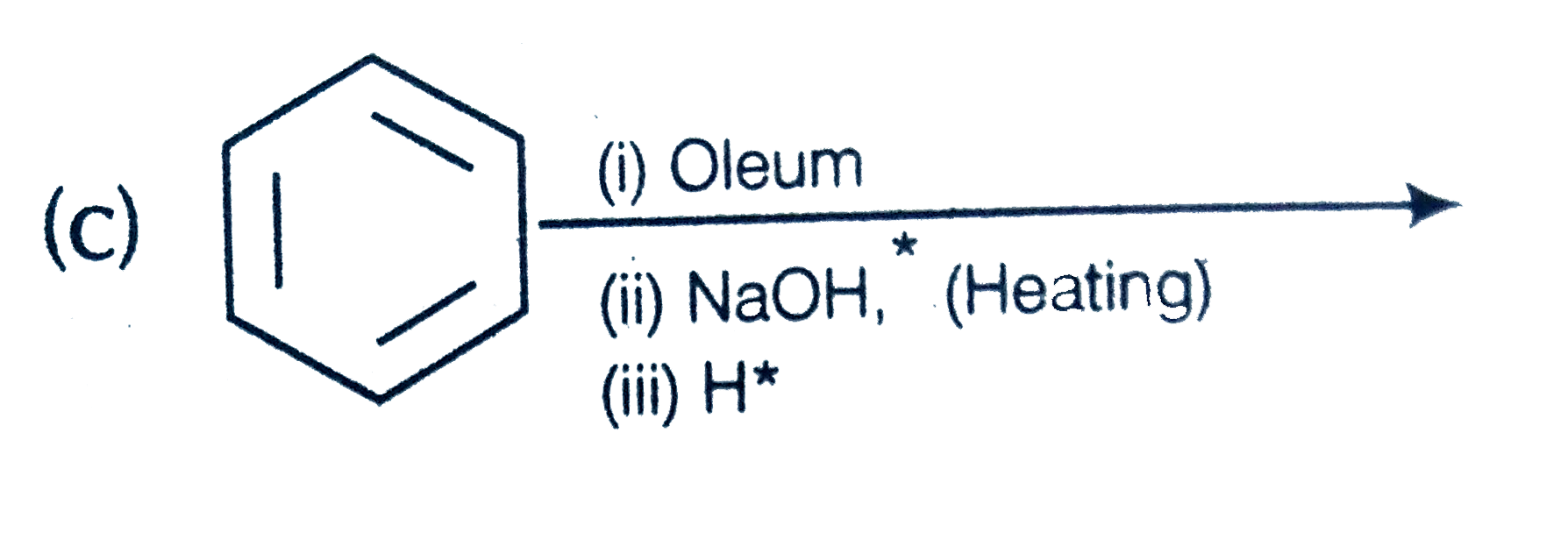
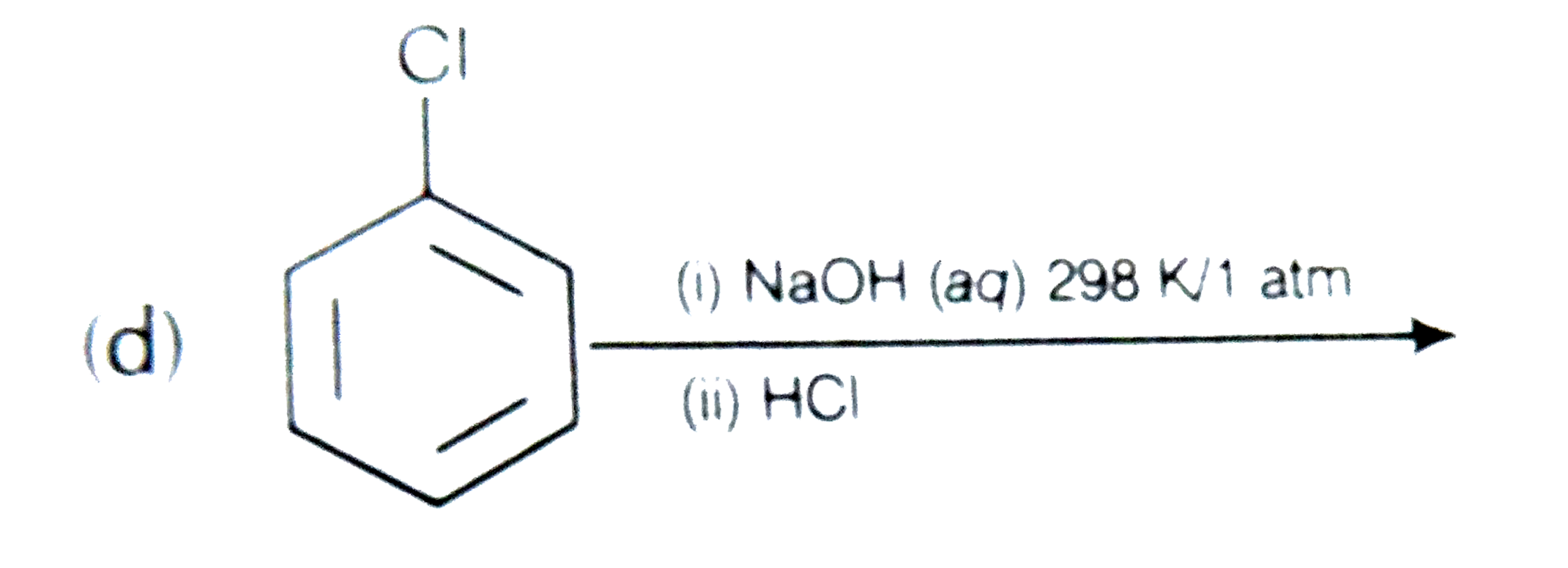
The correct Answer is:A, B, C
To determine which of the given reactions will yield phenol, we will analyze each reaction step by step.
Step 1: Analyze the first reaction
- Reactant: Chlorobenzene (C6H5Cl)
- Reagent: Sodium hydroxide (NaOH) at high temperature (623 K) and pressure (300 atm).
Reaction Mechanism:
1. Chlorobenzene reacts with NaOH where the nucleophilic hydroxide ion (OH⁻) attacks the carbon atom bonded to chlorine (Cl).
2. This leads to the formation of phenoxide ion (C6H5O⁻).
3. Upon hydrolysis (adding water and acid), the phenoxide ion is converted to phenol (C6H5OH).
Conclusion: This reaction yields phenol.
Step 2: Analyze the second reaction
- Reactant: Aniline (C6H5NH2)
- Reagent: Sodium nitrite (NaNO2) in the presence of hydrochloric acid (HCl).
Reaction Mechanism:
1. Aniline reacts with NaNO2 and HCl to form a diazonium salt (C6H5N2⁺Cl⁻).
2. When this diazonium salt is treated with warm water, it undergoes hydrolysis.
3. The hydrolysis of the diazonium salt leads to the formation of phenol and nitrogen gas (N2).
Conclusion: This reaction also yields phenol.
Step 3: Analyze the third reaction
- Reactant: Benzene (C6H6)
- Reagent: Oleum (SO3 in H2SO4).
Reaction Mechanism:
1. Benzene reacts with oleum to form benzene sulfonic acid (C6H5SO3H).
2. When benzene sulfonic acid is treated with NaOH, it undergoes hydrolysis to yield phenol.
Conclusion: This reaction yields phenol as well.
Step 4: Analyze the fourth reaction
- Reactant: Chlorobenzene (C6H5Cl)
- Reagent: Sodium hydroxide (NaOH) in aqueous medium followed by hydrochloric acid (HCl).
Reaction Mechanism:
1. Chlorobenzene reacts with NaOH, but in this case, the reaction does not proceed to form phenol.
2. The presence of HCl after the reaction with NaOH leads to the reformation of chlorobenzene instead of yielding phenol.
Conclusion: This reaction does not yield phenol.
Final Conclusion
The reactions that yield phenol are:
- First Reaction: Chlorobenzene + NaOH → Phenol
- Second Reaction: Aniline + NaNO2 + HCl → Phenol
- Third Reaction: Benzene + Oleum → Phenol
Thus, the correct answers are A, B, and C.
---
- Reactant: Chlorobenzene (C6H5Cl)
- Reagent: Sodium hydroxide (NaOH) at high temperature (623 K) and pressure (300 atm).
1. Chlorobenzene reacts with NaOH where the nucleophilic hydroxide ion (OH⁻) attacks the carbon atom bonded to chlorine (Cl).
2. This leads to the formation of phenoxide ion (C6H5O⁻).
3. Upon hydrolysis (adding water and acid), the phenoxide ion is converted to phenol (C6H5OH).
- Reactant: Aniline (C6H5NH2)
- Reagent: Sodium nitrite (NaNO2) in the presence of hydrochloric acid (HCl).
1. Aniline reacts with NaNO2 and HCl to form a diazonium salt (C6H5N2⁺Cl⁻).
2. When this diazonium salt is treated with warm water, it undergoes hydrolysis.
3. The hydrolysis of the diazonium salt leads to the formation of phenol and nitrogen gas (N2).
- Reactant: Benzene (C6H6)
- Reagent: Oleum (SO3 in H2SO4).
1. Benzene reacts with oleum to form benzene sulfonic acid (C6H5SO3H).
2. When benzene sulfonic acid is treated with NaOH, it undergoes hydrolysis to yield phenol.
- Reactant: Chlorobenzene (C6H5Cl)
- Reagent: Sodium hydroxide (NaOH) in aqueous medium followed by hydrochloric acid (HCl).
1. Chlorobenzene reacts with NaOH, but in this case, the reaction does not proceed to form phenol.
2. The presence of HCl after the reaction with NaOH leads to the reformation of chlorobenzene instead of yielding phenol.
The reactions that yield phenol are:
- First Reaction: Chlorobenzene + NaOH → Phenol
- Second Reaction: Aniline + NaNO2 + HCl → Phenol
- Third Reaction: Benzene + Oleum → Phenol
Topper's Solved these Questions
Similar Questions
Knowledge Check
Which of the following reactions will yields phenol ?
A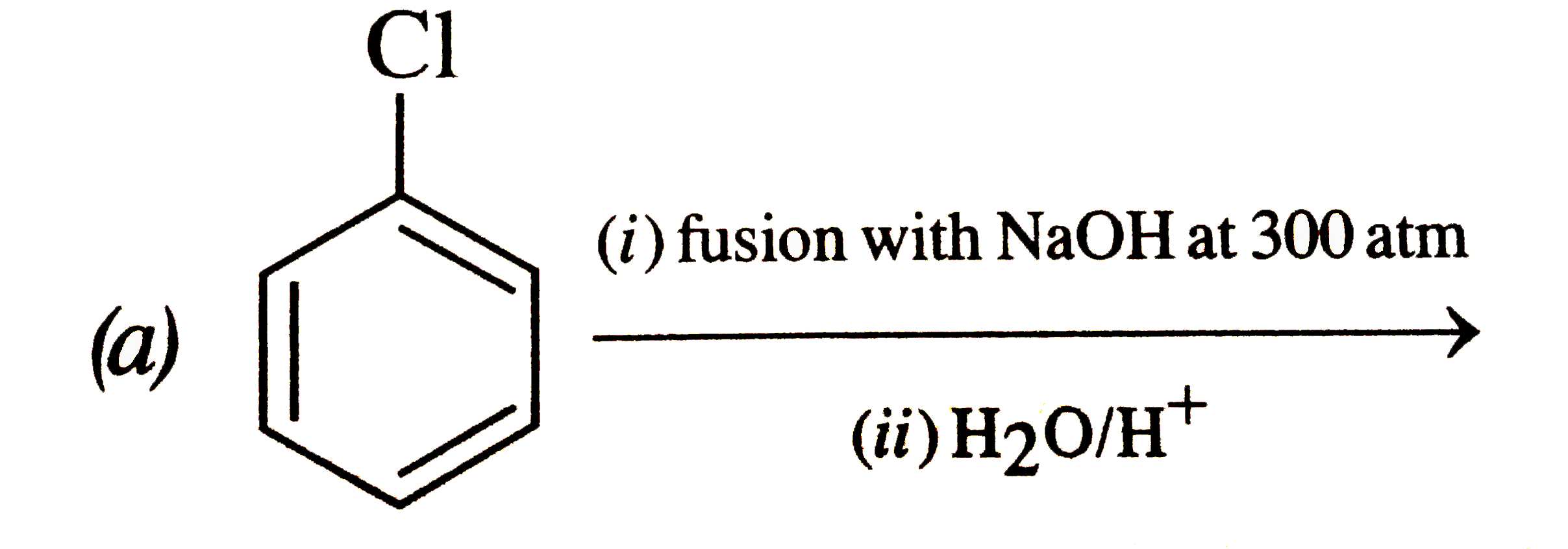 B
B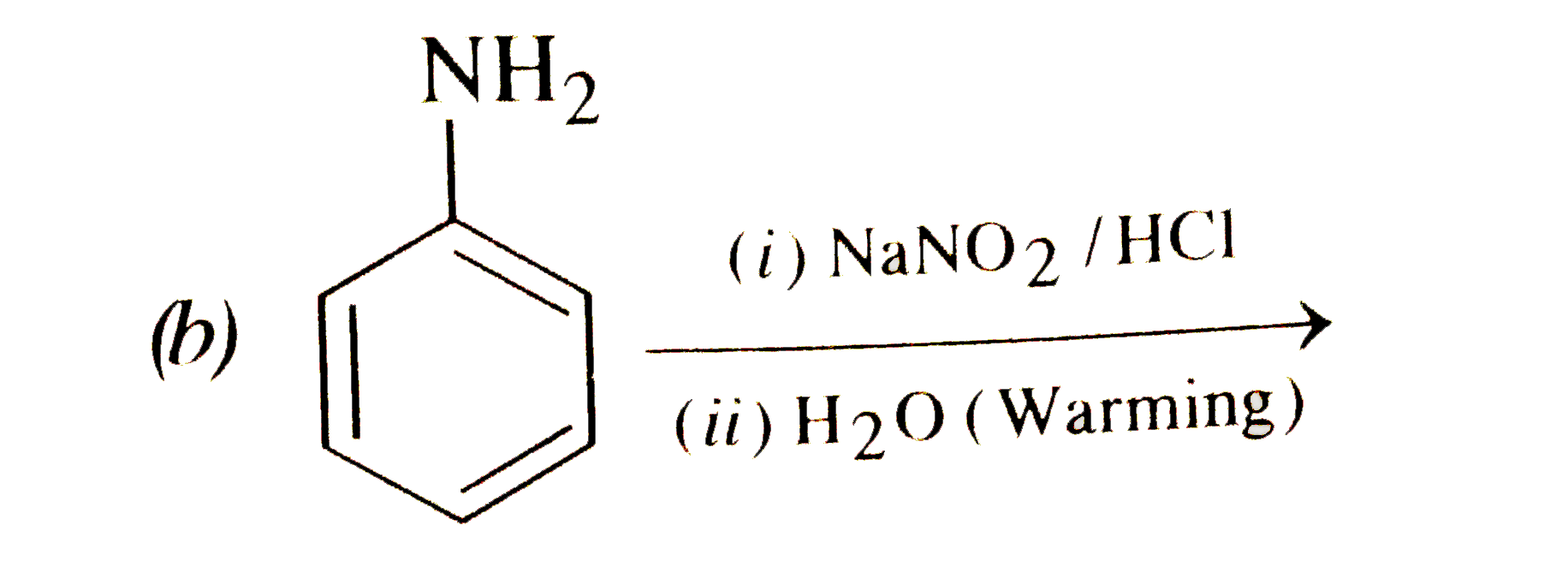 C
C D
D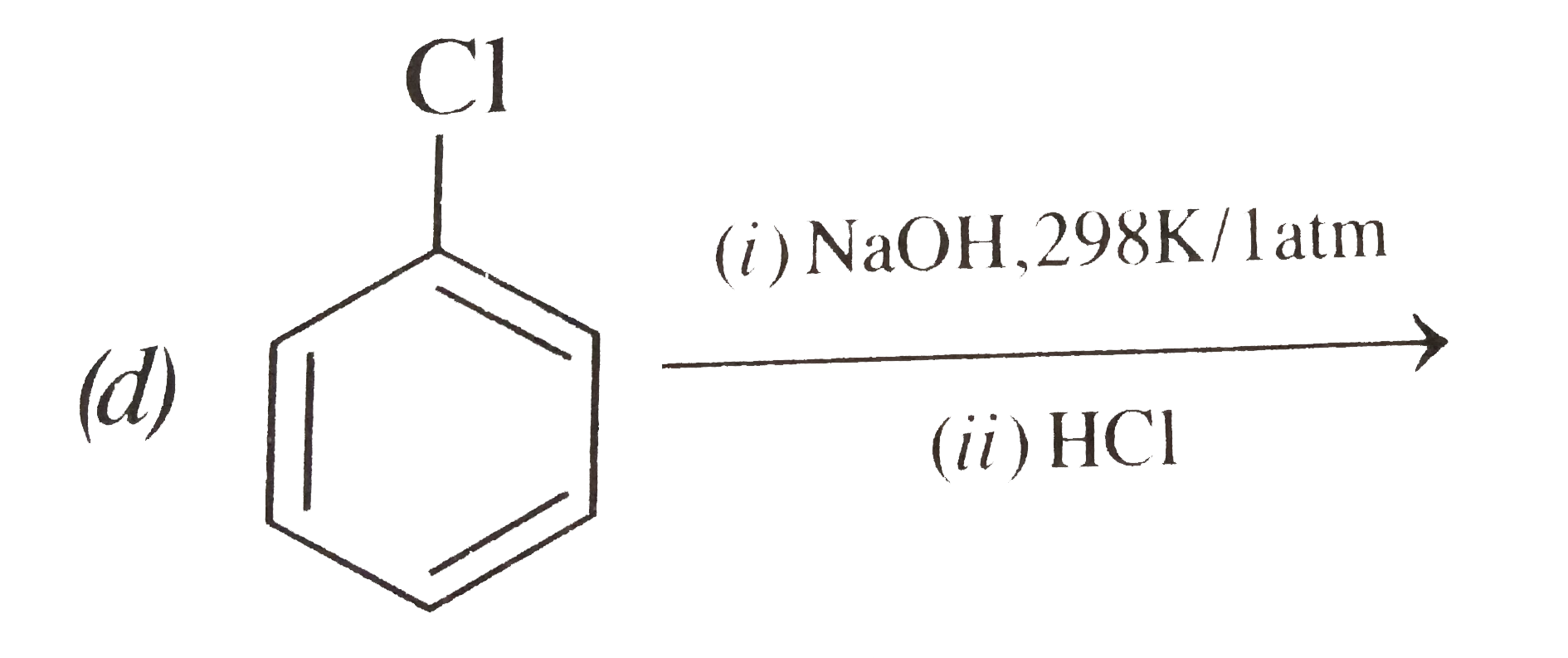
Which of the following reactions will not yield phenol ?
A B
B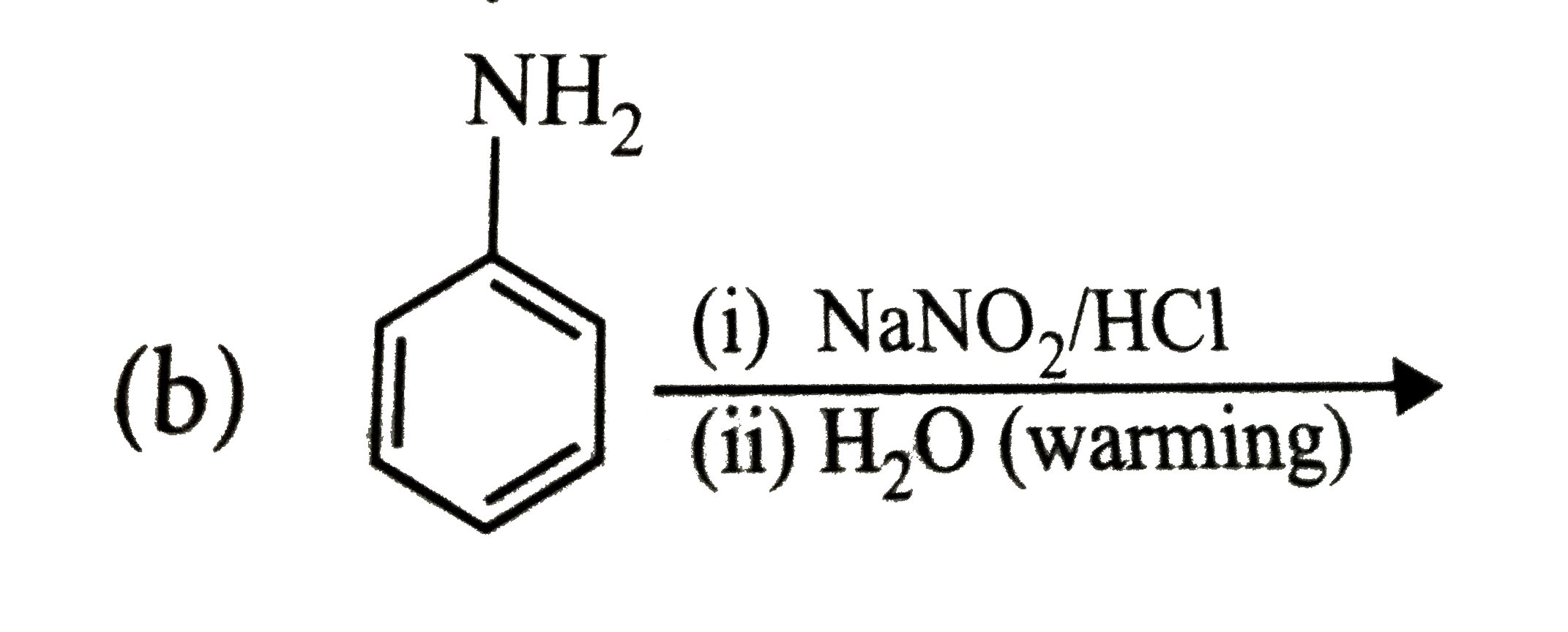 C
C D
D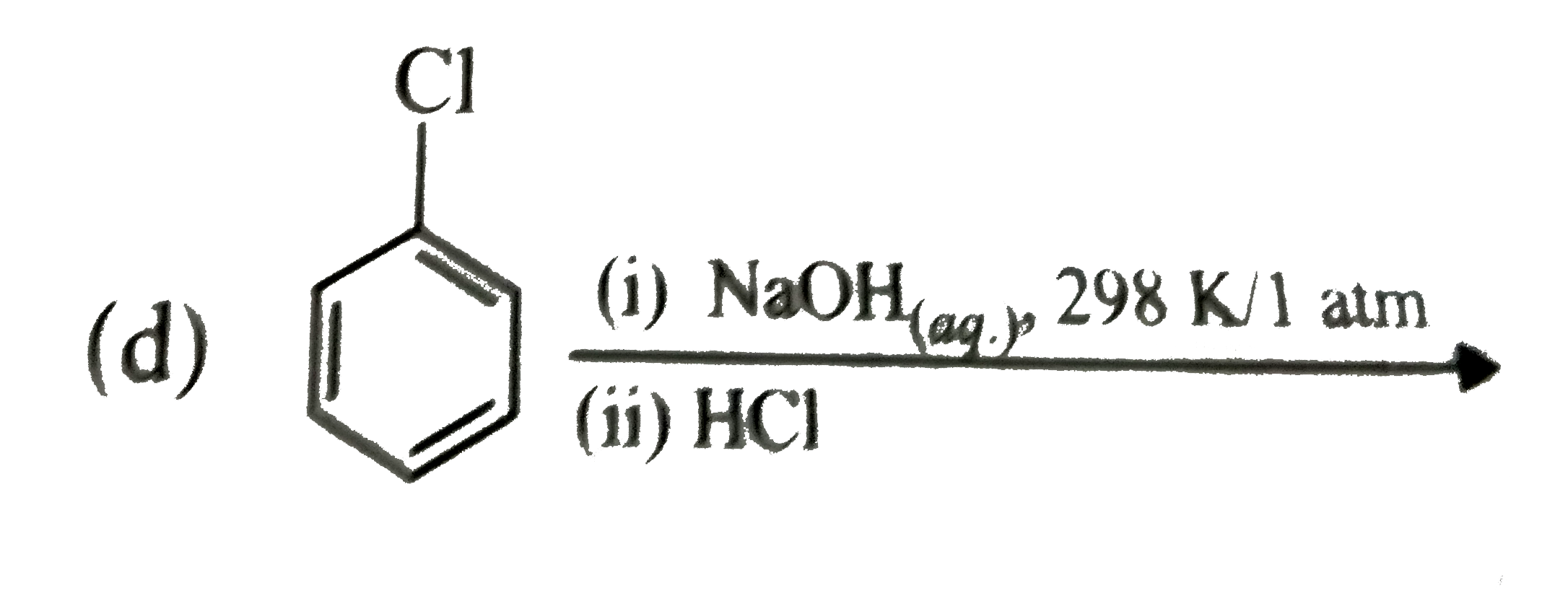
Which of the following reactions will yield only propan-2-ol ?
ACH2=CH−CH3+HOHH+−−→BCH3−CHOCH3MgBr/HOH−−−−−−−−−−→CHCHOC2H5MgI/HOH−−−−−−−−−−→DCH2=CH−CH3NeutralKMnO4−−−−−−−−−→
Which of the following reactions will not yield p-tert butylphenol?
View SolutionWhich of the following reactions will yield 2,2-dibromopropane
View SolutionWhich of the following reactions will yield 2, 2-dibromopropane ?
View SolutionWhich of the following reactions with yield propan -2-ol ?
View SolutionWhich of the following reactions will not yield alcohol as the major product ?
View Solution